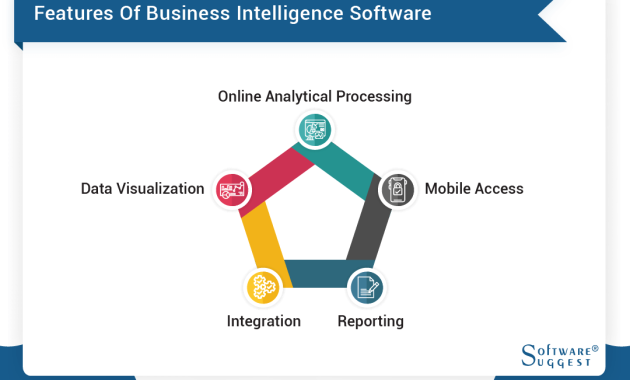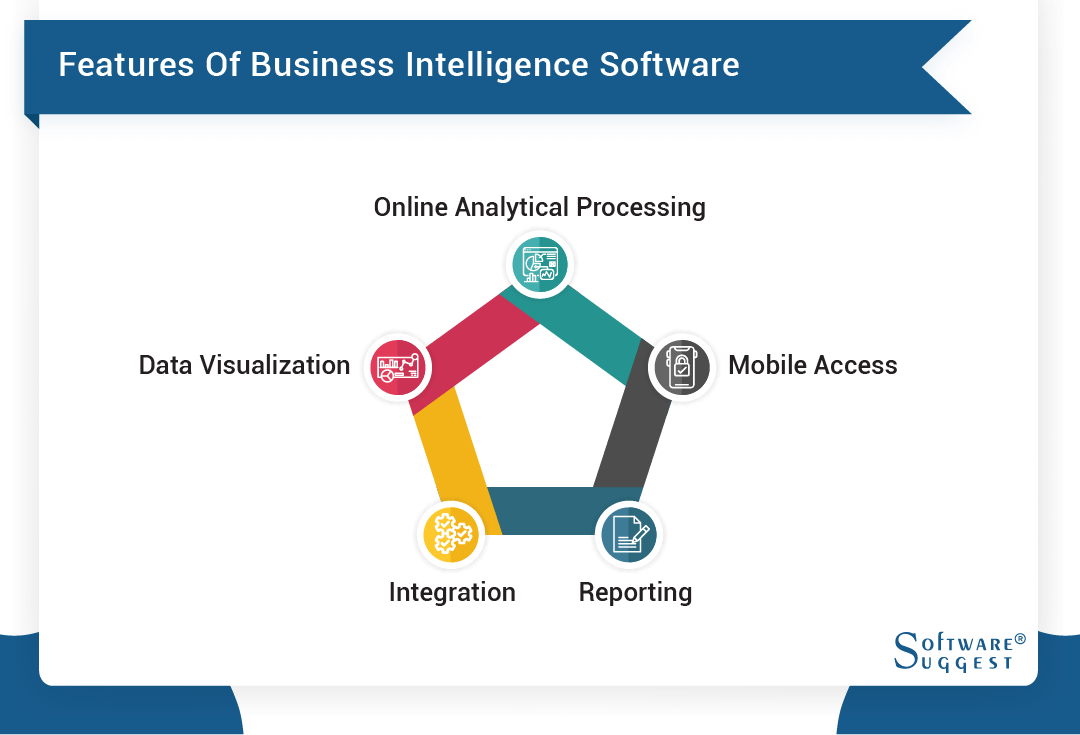
Unlocking Startup Success: How to Apply Business Intelligence Software for Game-Changing Insights
The startup landscape is a battlefield. Survival requires more than just a great idea; it demands data-driven decisions. In this competitive arena, **apply business intelligence software** is no longer a luxury, it’s a necessity. This article explores how startups can leverage **business intelligence (BI) software** to gain crucial insights, make informed decisions, and ultimately, thrive. We’ll delve into the benefits, implementation strategies, and real-world examples to guide you. Learn how to **apply business intelligence software** effectively and gain a competitive edge.
The Power of Data in the Startup World
Startups often operate with limited resources. Every decision carries significant weight. Traditional methods of analysis, like spreadsheets, can quickly become cumbersome and inefficient as a startup grows. This is where **business intelligence software** steps in. It transforms raw data into actionable insights. It empowers startups to understand their customers, optimize operations, and identify growth opportunities. With the right tools, startups can make data-backed decisions. This leads to better resource allocation and increased efficiency.
Understanding Business Intelligence Software
**Business intelligence (BI) software** encompasses a range of tools and technologies. These tools help businesses collect, analyze, and visualize data. The goal is to provide insights that drive better decision-making. Key features often include:
- Data collection and integration from various sources.
- Data warehousing and storage for efficient analysis.
- Data analysis and reporting capabilities.
- Data visualization tools, such as dashboards and charts.
- Predictive analytics and forecasting.
Various **business intelligence software** options exist. Some are designed for specific industries or business needs. Others offer a broader range of functionalities. Choosing the right software is crucial for a startup’s success. Consider factors like budget, technical expertise, and specific business goals. The best approach involves a thorough evaluation of different **business intelligence software** options.
Benefits of Implementing Business Intelligence Software for Startups
The advantages of implementing **business intelligence software** for startups are numerous and impactful. Here are some key benefits:
Improved Decision-Making
Data provides a foundation for sound decisions. **Business intelligence software** provides this foundation. It empowers startups to move beyond guesswork and intuition. Instead, they can rely on data-driven insights. This leads to more informed decisions across all departments. This is crucial for navigating the challenges of the startup journey.
Enhanced Customer Understanding
Understanding customers is vital for success. **Business intelligence software** helps startups analyze customer data. This reveals valuable insights into customer behavior, preferences, and needs. This knowledge enables startups to personalize marketing campaigns, improve customer service, and develop products that resonate with their target audience. Customer understanding fosters loyalty and drives growth.
Optimized Operations
Efficiency is critical, particularly for startups. **Business intelligence software** can identify operational bottlenecks and inefficiencies. This leads to optimized processes and reduced costs. Startups can streamline their supply chain, improve inventory management, and enhance resource allocation. Operational efficiency is key to sustainable growth.
Increased Revenue and Profitability
By understanding customers, optimizing operations, and making better decisions, startups can boost their bottom line. **Business intelligence software** helps identify revenue opportunities. It also helps to improve profitability. Startups can track key performance indicators (KPIs). This allows them to monitor progress and adjust strategies as needed. This data-driven approach leads to greater financial success.
Competitive Advantage
In a competitive market, data is a powerful asset. **Business intelligence software** equips startups with a competitive edge. It allows them to identify market trends, understand competitor strategies, and capitalize on emerging opportunities. This proactive approach helps startups stay ahead of the curve. Gaining a competitive advantage is essential for long-term survival.
How to Apply Business Intelligence Software: A Step-by-Step Guide
Implementing **business intelligence software** can seem daunting. However, following a structured approach can simplify the process. Here’s a step-by-step guide to help startups succeed:
Define Business Goals and Objectives
Before selecting any software, define your business goals. What do you want to achieve with **business intelligence**? What key questions do you need answered? Clearly defined goals will guide your software selection and implementation. It ensures the data analysis efforts are aligned with the overall business strategy.
Identify Data Sources
Determine where your data resides. Data sources can include CRM systems, marketing platforms, and financial records. Identify all relevant data sources. This ensures you have the data needed for comprehensive analysis. A comprehensive data set allows for robust insights.
Choose the Right Business Intelligence Software
Research and evaluate different **business intelligence software** options. Consider your budget, technical expertise, and specific needs. Look for software that offers the features you require. Prioritize ease of use, scalability, and integration capabilities. Select the software that best aligns with your business goals. This step is critical for ensuring a successful implementation.
Implement and Integrate the Software
Implement the chosen software and integrate it with your data sources. This may involve data extraction, transformation, and loading (ETL). Ensure the data is clean and accurate. This ensures the reliability of your insights. Proper integration is crucial for a smooth workflow.
Train Employees
Provide training to employees who will be using the software. Training ensures they understand how to use the software effectively. It also ensures they can interpret the data and generate meaningful reports. Proper training maximizes the value of your investment in **business intelligence software**.
Analyze Data and Generate Reports
Once the software is set up, analyze your data. Generate reports and dashboards that provide actionable insights. Focus on the KPIs that matter most to your business. Regularly review and update your reports. This ensures they remain relevant and informative. Data analysis is an ongoing process.
Monitor and Refine
Continuously monitor the performance of your **business intelligence software**. Evaluate its effectiveness and make adjustments as needed. Refine your data analysis processes. Also, refine your reporting to improve the insights you gain. This iterative approach ensures you are continually maximizing the value of your software.
Real-World Examples of Startups Using Business Intelligence Software
Many startups are already leveraging **business intelligence software** to achieve remarkable results. Here are a few examples:
E-commerce Startup
An e-commerce startup uses **business intelligence software** to analyze sales data. They identify their best-selling products and optimize their marketing campaigns. They use data to personalize customer recommendations. This leads to increased sales and higher customer lifetime value. The use of data helps them adapt quickly to market trends.
SaaS Startup
A Software-as-a-Service (SaaS) startup uses **business intelligence software** to track customer churn rates. They identify factors that contribute to churn. They then implement strategies to improve customer retention. This leads to a more stable revenue stream. Data-driven insights help them improve their product and service offerings.
Fintech Startup
A fintech startup uses **business intelligence software** to analyze user behavior. They identify patterns in user transactions. This allows them to detect fraud and improve security measures. They also use data to personalize financial product recommendations. This leads to increased customer satisfaction. Data-driven analysis improves security and customer service.
Choosing the Right Business Intelligence Software for Your Startup
Selecting the right **business intelligence software** is a crucial decision. Consider the following factors:
- **Ease of Use:** The software should be user-friendly and intuitive.
- **Scalability:** The software should be able to handle your growing data volume.
- **Integration:** The software should integrate with your existing systems.
- **Reporting Capabilities:** The software should offer robust reporting and visualization tools.
- **Cost:** The software should fit within your budget.
Research different options. Compare features, pricing, and reviews. Consider a free trial to test the software. Choose the software that best meets your specific needs. Careful selection will maximize your ROI.
Future Trends in Business Intelligence for Startups
The field of **business intelligence** is constantly evolving. Startups should stay informed about emerging trends. These trends can help them stay ahead of the curve:
- **Artificial Intelligence (AI) and Machine Learning (ML):** AI and ML are increasingly being integrated into **business intelligence software**. This enables more advanced analytics and predictive capabilities.
- **Data Democratization:** Making data accessible to everyone in the organization is a key trend. This empowers employees to make data-driven decisions.
- **Cloud-Based Solutions:** Cloud-based **business intelligence software** is becoming more popular. This offers scalability, flexibility, and cost-effectiveness.
- **Mobile BI:** Accessing data and insights on mobile devices is becoming increasingly important. This enables real-time decision-making.
By staying informed about these trends, startups can ensure they are using the most effective tools. This will lead to better decision-making and improved outcomes.
Conclusion: Embracing Data for Startup Success
In the fast-paced world of startups, data is a critical asset. Applying **business intelligence software** empowers startups to gain valuable insights. It allows for data-driven decisions. This leads to improved customer understanding, optimized operations, and increased profitability. By following the steps outlined in this article, startups can successfully implement **business intelligence software**. They can then unlock their full potential. Embrace the power of data. Position your startup for sustainable success. [See also: How to Build a Data-Driven Culture in Your Startup] [See also: Data Visualization Best Practices for Startups]

